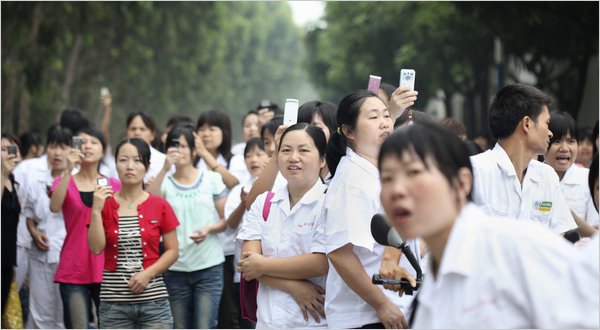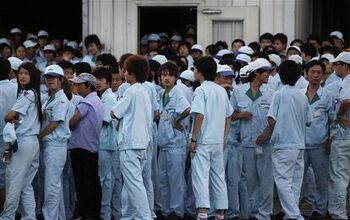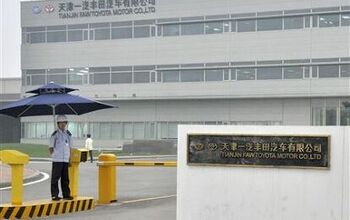Chinese Strikes: It's Toyota's Turn

The Honda strikes have been settled – more or less. Now it’s Toyota’s turn. Workers at an auto parts factory in Tianjin, China, run by a Chinese subsidiary of Toyoda Gosei, 42 percent owned by Toyota, went on strike Thursday and had not returned to their jobs today, a Toyoda Gosei spokesman confirmed to the New York Times. The factory makes plastic parts for a FAW-Toyota joint venture assembly plant in Tianjin. It’s not the only strike that affects Toyota.
The strike comes after a one-day work stoppage at another Toyoda Gosei auto parts factory, Tianjin Star Light Rubber & Plastic. Employees came back to work after the company promised pay increases.
Toyota HQ in Tokyo first said that car assembly operations in China were “unaffected for now.” On Friday afternoon, the situation changed.
Production at Toyota’s Tianjin assembly plant are reported as partially suspended, due to a lack of plastic interior parts. France’s AFP says that “foreign-run factories in China have been targeted in recent labor unrest as workers gamble on overseas companies responding to their demands and government officials supporting their actions.”
The New York Times calls it a “labor revolt by text message and video upload, underwritten by the Chinese government.”
It is hard not to notice the many op-ed pieces in Chinese state media that express sympathy with the striking workers and call for wage increases. It runs a bit against the cliché of an oppressive regime and millions of slave laborers, but it is what it is. And it’s one way to address the trade imbalance.

Bertel Schmitt comes back to journalism after taking a 35 year break in advertising and marketing. He ran and owned advertising agencies in Duesseldorf, Germany, and New York City. Volkswagen A.G. was Bertel's most important corporate account. Schmitt's advertising and marketing career touched many corners of the industry with a special focus on automotive products and services. Since 2004, he lives in Japan and China with his wife <a href="http://www.tomokoandbertel.com"> Tomoko </a>. Bertel Schmitt is a founding board member of the <a href="http://www.offshoresuperseries.com"> Offshore Super Series </a>, an American offshore powerboat racing organization. He is co-owner of the racing team Typhoon.
More by Bertel Schmitt


































Comments
Join the conversation
I can't wait for the UAW to try to expand to China. Wouldn't that just be great.
Well, China's workers do belong to unions officially, but they aren't independent of the state. These unions are actually used as means of control and aren't really independent trade associations such as the UAW/CAW, CGT in France, etc. So any strikes are taken up independently of the trade unions. The state has a bit of a dilemma, really, when trying to balance the objectives of i) maintaining social stability and avoiding upheaval, which the Chinese national leadership are extremely nervous about and 2) keeping an environment friendly to foreign investment and business.
Excellent, the chinese workers should get a much larger piece of the cake. Deng Xiaoping said it was glorious to become rich, and that a few should become rich first. Now it's time for more to become more affluent.